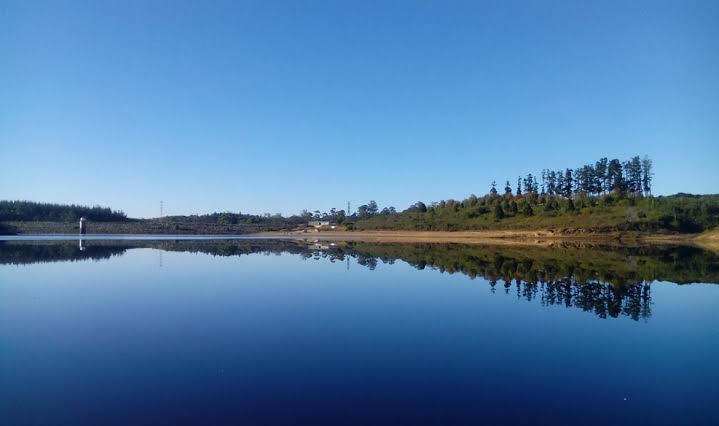By Thapelo Molefe
In the first 100 days of the seventh administration, the Ministry of Water and Sanitation, under Minister Pemmy Majodina, has made notable strides in expediting water-use licence processing, a critical move aimed at supporting sustainable water access and resource management in the country.
She told reporters in Pretoria on Tuesday that in the quarter ending September 2024, the ministry achieved a 73% success rate in processing water use licence applications within 90 days.
“This is a significant improvement from 62% processed within 90 days on average during the 2022/23 financial year,” She said.
To address the bottlenecks in licensing, the department hired 120 additional technical staff and made upgrades to its e-WULAAS electronic system, a key tool that supports electronic application and authorisation processes.
These changes are expected to boost efficiency further, helping to ensure that water resources are utilised sustainably and are accessible to a broader range of stakeholders, from farmers to industrial users.
Beyond licensing, the ministry has focused on structural reforms and water infrastructure projects, aligning its initiatives with Operation Vulindlela, the national modernisation programme led by the President, Cyril Ramaphosa.
A primary focus within these reforms is the establishment of the National Water Resource Infrastructure Agency (NWRIA), made official with the signing of the NWRIA Act.
Majodina said this new agency merged existing water management entities, including the Trans Caledon Tunnel Authority (TCTA) and the department’s infrastructure branch.
It is responsible for financing, developing and maintaining the national water infrastructure.
To strengthen local water management, the ministry has moved forward with the establishment of Catchment Management Agencies (CMAs).
She said five out of six CMAs have now been formalised, with board appointments and recruitment of agency members underway.
According to Majodina, the sixth CMA was expected to begin operations soon, promoting water security and supporting the equitable distribution of water resources in collaboration with local stakeholders.
She continued saying a series of major infrastructure projects were also in progress, with the ministry and TCTA overseeing 14 initiatives to secure raw water for key regions.
This included the high-profile, R42 billion second phase of the Lesotho Highlands Water Project, aimed at increasing water supply to Gauteng, and the R28 billion construction of a new dam and transfer tunnel on the uMkhomazi River to serve KwaZulu-Natal municipalities.
Other large-scale projects included wall-raising initiatives for the Clanwilliam Dam in the Western Cape and the Tzaneen Dam in Limpopo, enhancing their capacity and resilience.
Majodina outlined the ministry’s ongoing efforts to improve water quality and reduce pollution across South Africa’s river systems.
“On the 3rd of October 2024, the Ministry launched an Anti-pollution Forum to coordinate efforts to improve water quality in the Vaal River System,” she said.
The minister said oversight visits in the Free State and Mpumalanga highlighted pollution issues affecting local agriculture and communities, reinforcing the ministry’s commitment to protecting water resources.
The Ministry also tackled essential infrastructure challenges, including a major maintenance shutdown of the Lesotho Highlands Water Project Tunnel on 1 October, ensuring continued water supply to Gauteng and Free State through strategic storage.
Similarly, Majodina said maintenance on the Sundays River canal in July kept water access uninterrupted for Nelson Mandela Bay and nearby farmers.
Prioritising safety, the ministry said it completed an investigation into the 2022 Jagersfontein Tailings Dam collapse, and has now invited proposals for tourism initiatives at state-managed dams.
Majodina reiterated the ministry’s commitment to water security, sustainability and efficient service delivery, stating: “Our first 100 days reflect a robust foundation, but we are just beginning. These changes are vital steps toward achieving equitable water access and sustainable management for all South Africans.”
INSIDE POLITICS

